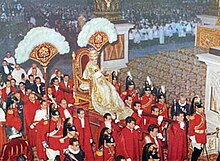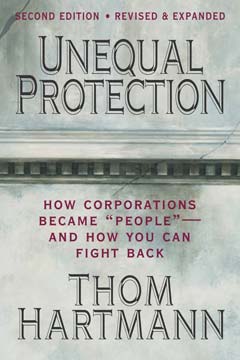 In a recent Facebook forum on Gordon Clark, Monty Collier wrote a scathing post about me. It was removed by the moderator. This guy is so entertaining; let’s tune in! Monty says,
In a recent Facebook forum on Gordon Clark, Monty Collier wrote a scathing post about me. It was removed by the moderator. This guy is so entertaining; let’s tune in! Monty says,
“Drake Shelton is no Clarkian. He’s a Greek Orthodox / Catholic whore.”
>>>Now that’s a good start to an entertaining movie. Someone get me some popcorn!
“He does not believe in Sola Fide.”
>>>Really? Can you prove it on pain of the 9th commandment?
“I recently confronted him and his heresy on youtube, and he completely fell apart.”
>>>The gentleman whose youtube account we debated on has now been removed from Youtube, so you’ll have to take Monty’s word for it. I drowned him in quotes from Presbyterian Theologians and he went silent.
“He admitted on youtube that he thinks salvation is based on what we do “
>>>You are in violation of the 9th commandment you pathetic excuse for a Christian. I made clear so many times as I have made clear to other Hyper-Calvinists, the basis of justification, i.e. the meritorious cause is the work of Christ alone. Christ’s righteousness alone. The condition of application is faith. I have probably had to write this a hundred times.
“Shelton’s view of union with Christ is that of Federal Vision, but when I confronted him on this his only defense was: “I haven’t read a single Federal Vision writer.” Notice such a claim does not imply that his position is different from that of Federal Vision–LOL!”
>>>You are in violation of the 9th commandment again you lying fool. I even quoted Shaw for you so you knew what I meant. I’ll quote him again,: Robert Shaw commenting on WCF 11.4 says,
“The righteousness by which they are justified was perfected in Christ’s death, and the perfection of it was declared by his resurrection, and they may be said to have been virtually justified when Christ was acquitted and discharged as their head and representative; nevertheless, they are not actually and formally justified until they are vitally united to Christ by faith.”
So union with Christ is not a meritorious cause but is the point at which the work of Christ [which is the only meritorious cause of justification] is applied to the believer. It is as God comprehends us in Christ that the declaration of justification is made. Moreover, my view of union with Christ has nothing to do with Federal Vision. I had to refute Sean on this point before and proved him a liar on this point as well. In my article: Protestant Ecclesiology Part 3; The Visible and Invisible Church and its Relationship to Union with Christ, by Drake I was told by Sean Gerety that Rutherford’s view of an unbeliever’s union with Christ was the Federal Vision position. Sean said in his blog article Putting Words In His Mouth?
“In the combox to a previous post Drake said, “Unbelievers in the Covenant of Grace have a certain non-salvific, legally binding union to Christ while remaining at the same time under Adam and the Covenant of Works” [emphasis mine]. How can those who are under “Adam and the CoW” simultaneously be members of the CoG? Do they have a foot in each and are just straddling the fence between heaven and hell? And, is there even a such thing as a fence between heaven and hell? What kind of worthless and ineffective covenant is this?
Let’s take for granted that Drake isn’t so far off the reservation in that he really believes the non-elect have faith, then how are the non-elect members of the CoG? The FV men say via baptism, does Drake? Could it be that Drake is confused about the external aspects of the CoG’s administration which the non-elect can participate in with the substance of the covenant or its internal aspects? FWIW Drake exemplifies the kind of confusion concerning the covenant that in my view has allowed the FV men to make incredible strides in the spread of their false gospel.” [January 11th, 2011, 9:36AM]
[Sean quoting me] ‘I just said that faith was the condition to receive the promises of the covenant of grace not to be a party in it. You have misrepresented me and completely failed to deal with what I am saying.’
[Sean replying] Hogwash. You said unbelievers have a “legally binding union to Christ.” [January 11th, 2011, 11:51AM]
So what does the Federal Vision teach about the Covenant of Grace? Sean says “Let’s take for granted that Drake isn’t so far off the reservation in that he really believes the non-elect have faith, then how are the non-elect members of the CoG? The FV men say via baptism, does Drake?”
No. I am saying that in order to be a member of the COG one must perform a profession of faith, or simply be a child or household servant of someone who does profess faith [Baptism is excluded from this]. So this is the first point against Sean.
To John 15:2:
John Calvin commenting on John 15:2 says,
“2. Every branch in me that beareth not fruit As some men corrupt the grace of God, others suppress it maliciously, and others choke it by carelessness, Christ intends by these words to awaken anxious inquiry, by declaring that all the branches which shall be unfruitful will be cut off from the vine But here comes a question. Can any one who is engrafted into Christ be without fruit? I answer, many are supposed to be in the vine, according to the opinion of men, who actually have no root in the vine Thus, in the writings of the prophets, the Lord calls the people of Israel his vine, because,by outward profession, they had the name of The Church.”
Matthew Henry commenting on John 15:2 says,
“(1.) The doom of the unfruitful (v. 2): They are taken away. [1.] It is here intimated that there are many who pass for branches in Christ who yet do not bear fruit. Were they really united to Christ by faith, they would bear fruit; but being only tied to him by the thread of an outward profession, though they seem to be branches, they will soon be seen to be dry ones. Unfruitful professors are unfaithful professors; professors, and no more. It might be read, Every branch that beareth not fruit in me, and it comes much to one; for those that do not bear fruit in Christ, and in his Spirit and grace, are as if they bore no fruit at all, Hos. x. 1. [2.] It is here threatened that they shall be taken away, in justice to them and in kindness to the rest of the branches. From him that has not real union with Christ, and fruit produced thereby, shall be taken away even that which he seemed to have, Luke viii. 18. Some think this refers primarily to Judas.”
Jamieson, Fausset Brown on John 15:2
“2. Every branch in me that beareth not fruit . . . every branch that beareth fruit–As in a fruit tree, some branches may be fruitful, others quite barren, according as there is a vital connection between the branch and the stock, or no vital connection; so the disciples of Christ may be spiritually fruitful or the reverse, according as they arevitally and spiritually connected with Christ, or but externally and mechanically attached to Him. The fruitless He “taketh away” “purgeth” (cleanseth, pruneth)–stripping it, as the husbandman does, of what is rank (Mark 4:19), “that it may bring forth more fruit”; a process often painful, but no less needful and beneficial than in the natural husbandry.”
John Gill’s Exposition of the Entire Bible, John 15:2
“Ver. 2. Every branch in me that beareth not fruit,…. There are two sorts of branchesin Christ the vine; the one sort are such who have only an historical faith in him, believe but for a time, and are removed; they are such who only profess to believe in him, as Simon Magus did; are in him by profession only; they submit to outward ordinances, become church members, and so are reckoned to be in Christ, being in a church state, as the churches of Judea and Thessalonica, and others, are said, in general, to be in Christ; though it is not to be thought that every individual person in these churches were truly and savingly in him. These branches are unfruitful ones; what fruit they seemed to have, withers away, and proves not to be genuine fruit; what fruit they bring forth is to themselves, and not to the glory of God, being none of the fruits of his Spirit and grace: and such branches the husbandman taketh away; removes them from that sort of being which they had in Christ. By some means or another he discovers them to the saints to be what they are; sometimes he suffers persecution to arise because of the word, and these men are quickly offended, and depart of their own accord; or they fall into erroneous principles, and set up for themselves, and separate from the churches of Christ; or they become guilty of scandalous enormities, and so are removed from their fellowship by excommunication; or if neither of these should be the case, but these tares should grow together with the wheat till the harvest, the angels will be sent forth, who will gather out of the kingdom of God all that offend and do iniquity, and cast them into a furnace of fire, as branches withered, and fit to be burnt.”
John Lightfoot on John 15:1
“Our Saviour, as we have said before, discoursed these things immediately after that he had instituted the holy eucharist: while he was ordaining that holy sacrament he had said, “This is the new testament in my blood”; and from thence immediately adds, I am the true vine: so that for the future the church is to be under the administration of a new testament, and not, as the Jewish church, under that of the old; and from henceforward I am the true vine, into which all the branches of the church must be ingrafted, and not into the Israelitish vine any more.”
Here are all the quotes I could find from Rutherford’s Covenant of Life Opened where he speaks on the issue of unbelievers in the COG and being united to Christ and this union to Christ being something Legal and binding on their persons,
“[Section title: “It is False that None are in the Covenant of the New Testament but Converts”] ’because there can be none (say Anabaptists) but real believers under the New Testament in covenant with God. Yea but the New testament offers Christ a Covenant , in the preached promises, alike to fathers and sons, Matthew 4:16, the people (fathers and sons) that sat in darkness saw great light…How can the Lord say, blessed be Egypt, and though the whole seed be visibly in Covenant, old and young, yet it followeth not that, therefore every promise that is absolute, that is, of a new heart is made to all and everyone within the Visible Covenant…the Lord calls them those whom he delivered out of Egypt his people…whether they have a new heart or not, the Lord calls them his people…so the Church of Corinth, 2 Corinthians 16, is called his people…many of them uncircumcised in heart…and with many of them God was not well pleased…and so it is most false that none are in Covenant under the New testament, but only believers; for Judas, Demas, Simon Magus, and all the externally called…are by their profession in Covenant externally (Pg. 134-137)…[Section Title: “All in Visible Church are in the Covenant”] “the Adverb (really) relates to the real fruit of the fulfilled Covenant, and so such as are only externally within the Covenant, are not really within the Covenant, for God never directed, not intended to bestow the blessing Covenanted, nor grace to perform the condition of the Condition upon them..But they are really Covenanted and engaged by their consented profession to fulfill the Covenant. And as the commands and threatening [THAT’S LEGAL LANGUAGE] of the Covenant of Grace lay on a real obligation, upon such as are only externally in covenant, either to obey or suffer [THAT’S LEGAL], so the promise of the Covenant imposes an engagement and obligation upon such to believe the promise, but sometimes, we say the promises of the Covenant of Grace are not really made to the reprobate within the Visible Church, because God intends and decrees to, and for them, neither the blessing promised, nor the saving grace to fulfill the condition or to believe. And therefore these word are figurative, Hebrews 8:10…that is, this is the special and principle Covenanted blessing, I will give them a new heart: which must not be called a simple prediction, though a prediction it is, but it is also a real promise made absolutely to the elect, which the Lord fulfills in them (pg. 151-152)… “They are become the Kingdoms of the Lord, not only because they are truly converted, but because they are the chosen of God in the Office-house of Christ, and Christ reigns over them by the Scepter of his Word whom he is to convert. And external Covenanting with God is of itself free Grace and a singular favor bestowed of God, Psalm 147:19-20; Deuteronomy 5:1-2; Matthew 21:42-43; Luke 14:16,21. It is free Grace that God will have hypocrites and real infidels to beget children to him that are internally in Covenant with him; and fills up the number of the elect by Reprobate parents who are instrumental to the incoming in the world, and into the Visible church, of many Heirs of Glory: and in so doing there is a Church right [THIS RIGHT WHERE DOES IT COME FROM? ]communicated from Reprobate Parents to their Children, that are Heirs of Glory.(pg. 171)… [In a context of discussion Romans 11] “But many Nations descended of Adam have universally rejected Christ, and know not the Name of Christ the blessed seed. Question: May we not say that the root is Christ as mystical Head, from whom we partake of the sap of grace and life and fatness? Answer: The intent of Paul is to prove that the Jews, cut off, because their unbelief, shall be grafted in again, in the Lord’s own time, because of the holiness of the Covenant, that was in the root and in the first fruits Abraham, Isaac and Jacob. It is true, their Covenant-holiness is not the adequate cause, why they shall be grafted in really into Christ, for so all the carnal children, who had this relative holiness must be really engrafted into Christ, but it is with the Lord’s free love, both the cause of their personal, and of their Church engrafting, and the continued deriving of that relative holiness being a continued free favor in its kind, is the Lord’s love in the same kind to root and branches, otherwise it should not bear truth, which it said, verse 28, which expounds this, verse 28, that they are beloved for the fathers, not as if they were predestined to life, because Abraham was so chosen, but because of the Father’s Covenant-holiness, which was holiness from Christ not as root and head, through the influence of saving grace, but as politic head which yet is, what we say. For because Christ is holy as root, head and redeemer, the Jews once his Church Visible and to be so again, the branches are not really holy by faith, because all of them were not in Christ: But if all Jews and Gentiles, and also Infants who are Jews and Gentiles and parts of the body be baptized into the visible body, so are Infants.” (182-183)… “For Antinomians, and legal justitiaties miserably err in both extremities: the former will have no New Covenant in the days of the Gospel, but that which is made with the elect: The latter will have no New Covenant but such as is made with the whole race of mankind, Pagans not excepted: So Socinians, Arminians, Papists. 1. They [COG and COR] differ in the parties contractors: The parties contractors in the Covenant Preached, are God, and all within the Visible Church, whether Elect or Reprobate, and their seed, they professing the Gospel…But it’s a rich mercy that professors are dwelling in the work-house of the Grace of God, within the Visible Church, they are at the pool side, near the fountain, and dwell in Immanuel’s land where dwells Jehovah in his beauty, and where the Golden Candlesticks, and where these run rivers of Wine and Milk, such as are Expectants of Grace and Glory, to such the Marriage Table is covered, eat if they will.” (pg. 476)
A Joint Federal Vision Profession under the section, “The Sacrament of Baptism” says, “We affirm that God formally unites a person to Christ and to His covenant people through baptism into the triune Name”.Rutherford, as I have pointed out many times says that God unites men to Christ and the COG/Visible Church through profession. The basis on which we Scottish types assert this I mentioned in part 2:
“Who are the members of the visible Church? Reed says,
“Consistent with such views, the visible church has been defined in the Westminster Confession (25:2-3) as “those throughout the world that profess the true religion, together with their children.”
The passage that the Westminster Confession uses to prove that profession enters one into the visible Church is 1 Cor 1:2 To the church of God which is at Corinth, to those who have been sanctified in Christ Jesus,saints by calling, with all who in every place call on the name of our Lord Jesus Christ, their Lord and ours.
It has also been used by the Scottish Churches to show that this profession is indicative of becoming a member of the Covenant of Grace (COG). The two passages used to support this assertion are as follows:
Exo 19:8 All the people answered together and said, “All that the LORD has spoken we will do!” And Moses brought back the words of the people to the LORD.
Exo 24:3 Then Moses came and recounted to the people all the words of the LORD and all the ordinances; and all the people answered with one voice and said, “All the words which the LORD has spoken we will do!”
In A Joint Federal Vision Profession’s section titled, “Apostasy” it says,
“those who fall from that position of grace are indeed falling from grace. The branches that are cut away from Christ are genuinely cut away from someone, cut out of a living covenant body. The connection that an apostate had to Christ was notmerely external.”
Having said that they view the union to be “not merely external” does not tell me what they believe. However, Rutherfordclearly calls a reprobate’s union to Christexternal but still asserts a legal obligation on the reprobate and this obligation is the whole reason these people are held more accountable for falling away. What will the Hoeksemite or Baptist view say? That God judged them more harshly because they knew more than the average Joe? Does that mean that all unbelieving scholars who study Christianity are more liable to God than ignorant lazy fools? Nonsense! The Summary Statement of AAPC’s Position on the Covenant, Baptism, and Salvation says that,
“The Church is not merely a means to salvation, a stepping-stone to a more ultimate goal. Rather, the Church herself is the historic manifestation of God’s salvation (WCF 25.1,2), the partially-realized goal in history that will be brought to final fulfillment at the last day.”
Rutherford’s view is that theVisibleChurchis synonymous with the COG and is for this reason NOT COEXTENSIVE WITH SALVATION (Which as you can see is both the Baptist and Sacramentalist view) but is the tool that God applies the COR. This is the exact point that the Auburn Avenue Theology is here denying. AAPC continues,
“When someone is united to the Church by baptism [NOT Rutherford’s view], he is incorporated into Christ and into His body; he becomes bone of Christ’s bone and flesh of His flesh (Eph. 5:30).[Rutherford posits an external,legally binding union] He becomes a member of “the house, family, andkingdomofGod” (WCF 25.2). Until and unless that person breaks covenant, he is to be reckoned among God’s elect and regenerate saints.”
Buchanan mentions that elect infants are virtually justified but the gospel must be impressed upon them and they be exhorted to exercise faith to attain actual justification. If AAPC means that we think the best of those in the COG fine, but if they mean we should assume all children in the COG are regenerate and that it is insulting to exhort them to exercise faith, let them be accursed.
So Rutherford’s view is not even close to the Sacramentalism of the Federal Vision. For more detail on this issue of the COG and COR see The Covenant of Redemption by Drake Shelton and then my comments on Sean’s blog.
I believe that union with Christ is effected at the point of faith, not Baptism as the FV teaches. So once again you are proven a liar Monty.
“Sheltonthinks we are justified by the act of our faith (this is, by defintion, the heresy of evangelical obedience, which is condemned in the Westminster Standards, and it is a complete departure from Reformed theology–placing him firmly in Antichrist’s camp).”
>>>LOL! Sure. Already refuted dozens of times.
“In Calvinism, we teach that we are justified only by the object of our faith–never the act of it.”
>>>You have yet to show how I contradicted his.
“The Gospel is only about what Christ did for us: it is not about what we do”
>>> But your Christ has only one will. Yours is not the Christ of the Bible
“but Sheltonknows nothing of Law / Gospel Distinction”
>>>I am getting the impression that I have forgotten more than you have ever have or ever will know.
“Shelton, unlikeClark, actually claims God loves the reprobates (of course, he has no Scripture to support this).”
>>>I am not repeating what I have already made clear here: https://eternalpropositions.wordpress.com/2011/06/30/the-free-offer-of-the-gospel-a-non-paradoxical-and-rational-construction-by-drake-2/
I also have always claimed to be a Clarkian in my philosophy not my theology. Technically there is no real distinction between these but colloquially this means that I take Clark’s epistemology and metaphysic.
“That’s right,Shelton doesn’t hold to a lick of Absolute Predestination.”
>>>Actually I am a Supralapsarian and have proclaimed myself such for a long time now: http://olivianus.thekingsparlor.com/predestination/lapsarianism-by-drake
“Shelton, unlikeClark, also claims that sanctification is synergist.”
>>>That is what Shaw teaches.
“Clarktaught that sanctification is monergistic,”
I have read his book on sanctification numerous times. Show where he says this. Not where he claims that Sanctification was merited by Christ but where he says that man is passive in sanctification.
“Like Van Til,Sheltonbelieves in common grace and the “Free Offer of the Gospel”
>>>Like Turretin and Rutherford.
“worships the self-contradicting “church fathers.”
>>>Well I want to know what they said yes.
“Shelton, unlike Clark, claims that the Covenant of Grace is conditional.”
>>>Never read Clark speaking to this issue. Robbins does in typical Baptist form but I’d like to see where Clark takes up the parties of the COG. I’ll take Turretin and Rutherford’s view thanks.
“Like Greco/Catholic whores Jay Dyer and Paleocrap, who have also been caught on Facebook posing as Clarkians,”
>>>>I know nothing of the Paleo, but Jay posed as a Clarkian? That’s a laugh. I’d like to get some evidence for that.
“Sheltonlikes to pretend he’s a Clarkian, then point people to Greek Orthodoxy.”
>>>Hate to break this to your fractionally read ignorant hubris but Gregory Palamas said much of the same stuff that Clark did when he debated Barlaam the Aristotelian Scholastic.Clark also holds to social trinitarianismn which I have shown is Greek Triadology. So do you think you are more Clarkian for holding a Medieval Roman view of the Trinity rather than a Greek and Nicene? Nonsense!
“Sheltonis so irrational that he went as far as to say that Gordon H. Clark and John W. Robbins were not theologians–LOL!”
>>>>They weren’t. Clarkwas a Philosophy teacher and Robbins was an economist and a politician. Writing some theology does not make you a respected theologian.














-1-.jpg)

























